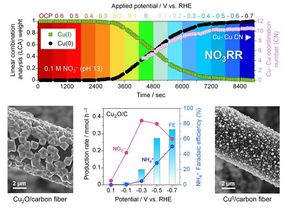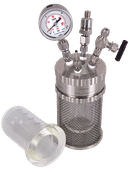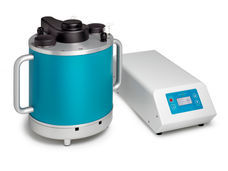Rohm and Haas Company awarded $5.2 Million grant to develop new technology to produce acrylic acid from propane
Advertisement
Rohm and Haas Company with support from Engelhard Corporation, has been awarded a $5.2 million grant by the U.S. Department of Energy's (DOE) Industrial Technologies Program to develop a major new manufacturing process that will use propane instead of propylene to manufacture acrylic acid. The novel technology, if adopted worldwide by acrylic acid and other propylene derivative manufacturers, could save up to 37 trillion BTUs per year, eliminate 15 million pounds of environmental pollutants annually, and potentially save U.S. industry nearly $1.8 billion by the year 2020.
Acrylic acid and its derivatives are used to create a wide range of polymer-based consumer and industrial products, such as adhesives, paints, polishes, protective coatings, and sealants, to name a few.
Rohm and Haas will complement its expertise in oxidation catalyst research with Engelhard's innovative approach in the development and application of monolithic catalysts used to control emissions. The two companies will optimize catalyst formulations and develop technology for depositing them onto heat exchangers and other monolithic structures. Technical and commercial success - the ability to cost effectively manufacture acrylic acid directly from propane - depends largely on uncovering the appropriate catalyst system.
Together, the companies will spend the next five years screening and testing thousands of unique catalysts. The University of Delaware, a partner in the project, will provide computational modeling capabilities.
Rising crude oil prices have driven up the cost of propylene to record levels in 2004. The switch to propane (typically half the cost of propylene) will yield significant savings in manufacturing costs.
"Acrylic acid is one of the fastest growing commodity chemicals, with worldwide demand increasing at about four percent per year," said Gerard E. Tarzia, Rohm and Haas vice president and business unit director, Monomers. "Fueled by its use in everything from water-based paints and sealants to super-absorbent polymers and detergent additives, a new world-scale acrylic acid plant must be built every year, on average, to keep up with demand. And with worldwide demand for acrylic acid at about 7.5 billion pounds, the cost savings alone by using a significantly less expensive key raw material would revolutionize the industry."
Not only would the project lead to efficiency improvements, but it would deliver significant energy savings as well. According to Steve Freimer, director of Rohm and Haas Monomer Technology, current technology to produce 140 billion pounds per year of propylene from naphtha and Liquefied Petroleum Gas relies on capital-intensive steam crackers and related high energy technology. "Today, we have to take that propylene and perform additional steps to convert it to acrylic acid and other derivatives. Propane, on the other hand, is a raw component of natural gas, and needs only to be separated out - a process that will eliminate costly, energy-dependent separation steps."
From an environmental standpoint, steam crackers and their furnaces require high energy consumption and generate carbon dioxide (COx), nitrogen dioxide (NOx) and sulfur dioxide (SOx) as by-products. By replacing crackers with comparatively small Short Contact Time Reactors, the new technology, if deployed across the propylene value chain, could reduce two million pounds of COx, nine million pounds of NOx and four million pounds of SOx emissions.
"This effort represents a wonderful collaboration of scientific, technological and commercial competencies directed to a substantive challenge that has the potential for significant process productivity and energy efficiency outcomes," said Dr. Edward T. Wolynic, Engelhard's chief technology officer and group vice president, Strategic Technologies. "We're pleased to bring our surface and materials science capabilities to support Rohm and Haas in this endeavor."
Rohm and Haas, the world's largest producer of acrylic monomer, has been working on a new propane-to-acrylic acid technology for the last several years. "We have made good progress despite a lot of technical hurdles," Freimer said. "With our partners at DOE, Engelhard and the University of Delaware, we have a great team in place to accelerate our pace and our chances of success."































































